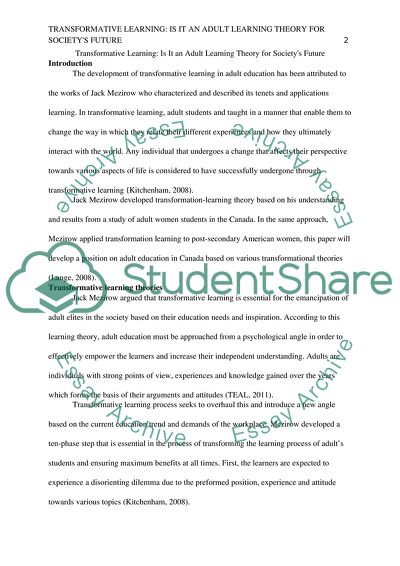Cite this document
(Transformative Learning: Is It an Adult Learning Theory for Society's Essay Example | Topics and Well Written Essays - 2250 words, n.d.)
Transformative Learning: Is It an Adult Learning Theory for Society's Essay Example | Topics and Well Written Essays - 2250 words. https://studentshare.org/education/1845832-transformative-learning-is-it-an-adult-learning-theory-for-societys-future
Transformative Learning: Is It an Adult Learning Theory for Society's Essay Example | Topics and Well Written Essays - 2250 words. https://studentshare.org/education/1845832-transformative-learning-is-it-an-adult-learning-theory-for-societys-future
(Transformative Learning: Is It an Adult Learning Theory for Society'S Essay Example | Topics and Well Written Essays - 2250 Words)
Transformative Learning: Is It an Adult Learning Theory for Society'S Essay Example | Topics and Well Written Essays - 2250 Words. https://studentshare.org/education/1845832-transformative-learning-is-it-an-adult-learning-theory-for-societys-future.
Transformative Learning: Is It an Adult Learning Theory for Society'S Essay Example | Topics and Well Written Essays - 2250 Words. https://studentshare.org/education/1845832-transformative-learning-is-it-an-adult-learning-theory-for-societys-future.
“Transformative Learning: Is It an Adult Learning Theory for Society'S Essay Example | Topics and Well Written Essays - 2250 Words”. https://studentshare.org/education/1845832-transformative-learning-is-it-an-adult-learning-theory-for-societys-future.


